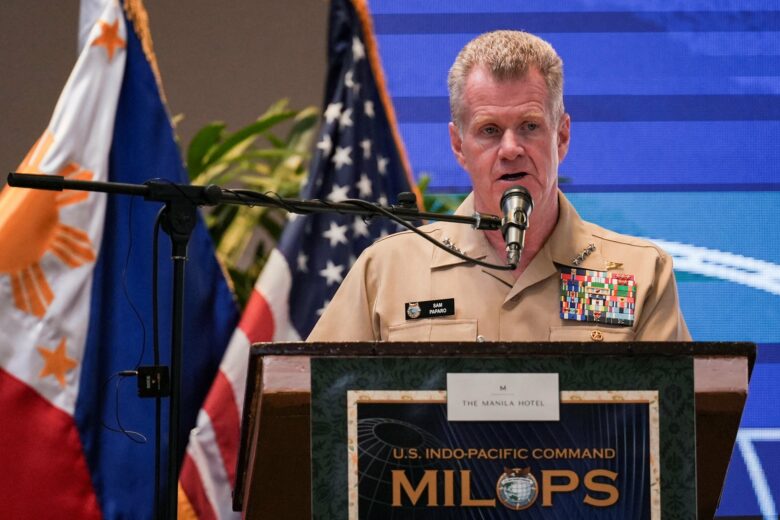North Korea has supplied Russia with hundreds of short-range ballistic missiles and hundreds of thousands of artillery shells for its war in Ukraine and is expected to receive advanced air defense systems, including surface-to-air missiles, in return, the head of U.S. Indo-Pacific Command told the U.S. Senate Armed Services Committee. It marks the first time a senior U.S. military official has publicly confirmed the arms trade between Pyongyang and Moscow.
A U.S. Defense Department official told foreign media the arrangement extends beyond a simple arms-for-cash transaction, describing it as a “strategic alliance between two authoritarian regimes.”
The Korea Institute for Defense Analyses estimates that North Korea has also dispatched mercenaries to support Russia’s war efforts, securing significant financial and material aid in exchange. In March, Pyongyang unveiled new military assets, including AI-powered suicide drones, airborne early warning and control aircraft, and reconnaissance drones. While their operational capabilities remain unverified, analysts note the systems represent a clear shift from North Korea’s conventional arsenal and could potentially involve Russian technology.
Even without such advanced cooperation, Russia’s provision of military hardware and technical assistance to North Korea already poses a serious security challenge for South Korea. Of particular concern is the potential transfer of the S-300 air defense system, which would directly undermine the South Korean Air Force’s operational flexibility and weaken its deterrence posture.
Security experts warn that if Moscow were to go further and supply sensitive technologies — such as nuclear-powered submarines or intercontinental ballistic missile (ICBM) re-entry vehicle systems — the threat level to both South Korea and the United States would escalate dramatically.
In May last year, North Korea launched a military reconnaissance satellite using a newly developed engine. Given Russian President Vladimir Putin’s earlier remarks that Moscow could assist Pyongyang’s satellite program, speculation has grown that Russian technology may have been involved in the failed launch. Should Moscow continue its support, analysts warn it is only a matter of time before North Korea succeeds in deploying a functional spy satellite — yet another strategic challenge for Seoul and Washington.
Despite these developments, when North Korea first dispatched mercenaries and missiles to aid Russia, South Korea’s main opposition Democratic Party (DPK) dismissed the moves as a “distant foreign matter” unrelated to South Korean security. The party urged the government not to overreact or escalate tensions.
But as military cooperation between Moscow and Pyongyang intensifies, the security threat to South Korea is becoming increasingly tangible. As the party currently holding a majority in the National Assembly, the DPK has a responsibility not to turn a blind eye to these growing dangers. It should make clear that any threat to South Korea’s national security — whether from North Korea, Russia, or both — will carry consequences. Such a statement would send a decisive message that South Korea’s security is no longer a matter of political division.
